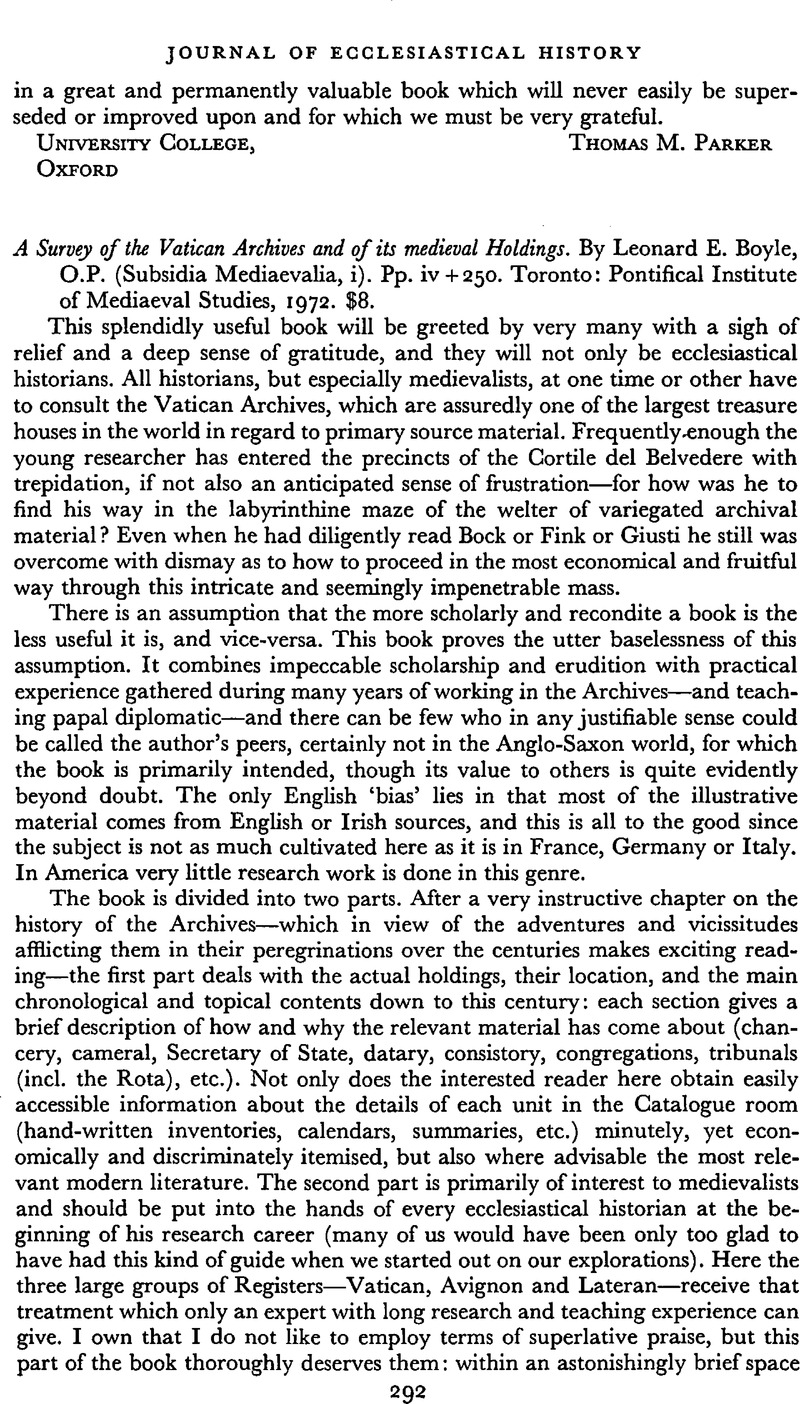No CrossRef data available.
Article contents
A Survey of the Vatican Archives and of its medieval Holdings. By Leonard E. Boyle, O.P. (Subsidia Mediaevalia, i). Pp. iv + 250. Toronto: Pontifical Institute of Mediaeval Studies, 1972. $8.
Published online by Cambridge University Press: 25 March 2011
Abstract

- Type
- Reviews
- Information
- Copyright
- Copyright © Cambridge University Press 1973
References
1 The absence of some recent literature is obviously due to the slow printing process. Cf., e.g., Burns, Ch., ‘Sources of British and Irish history in the Instrumenta Miscellanea concerning England and Ireland’ in Archivum Hist. Pont., IX (1971), 7–141Google Scholar (for 1191 to 1831; 394 calendars at 16ff.); Diener, H., ‘Die grossen Registerserien im Vat. Archiv’ in Quellen und Forschungen aus ital. Archiven und Bibl., LI (1971), 305–68Google Scholar (for the Avignon Registers: with facsimiles and many useful tables). For John VIII's Register see the additional observations by D. Lohrmann in AHP, loc. cit., 401ff.; here (at 409ff.) also interesting remarks supplementary to A. Maier (ibid., i (1963), 97ff.) about the return of the Vat. Registers from the anti-pope Benedict XIII's (Peter de Luna) residence in Catalonia to Rome (1429–30). In the account of the Archives under the direction of the eminent Augustine Theiner (cf. 14) Sickel's Erinnenmgen might have been cited to show something of the situation before the opening of the Archives to the public. When Theiner had illicitly helped scholars, including Lord Acton, he found himself in jeopardy. On a charge of serious dereliction of duty he was instantly dismissed from service in 1870 for admitting Lord Acton. Pius IX personally upbraided Theiner so vehemendy that he trembled with excitement and provoked the soothing advice by Theiner: ‘Calm down, holy father, you might get a stroke': Sickel, Th. v., Römische Erinnerungen, ed. Santifaller, L., Vienna 1947Google Scholar, 40 n. 2.


